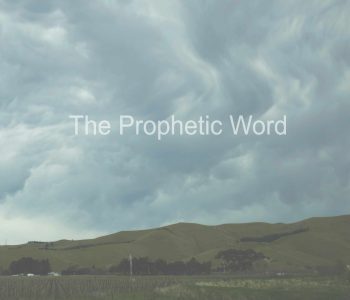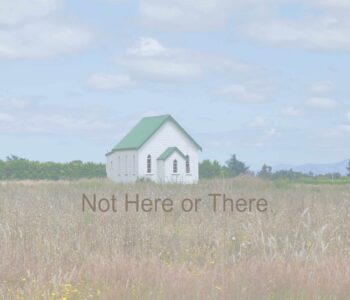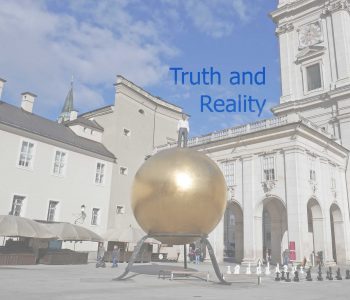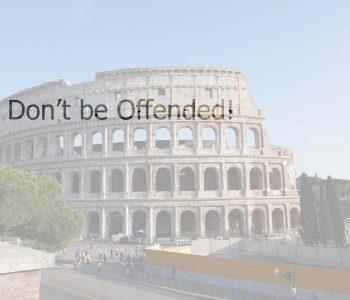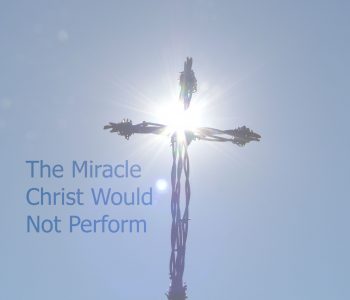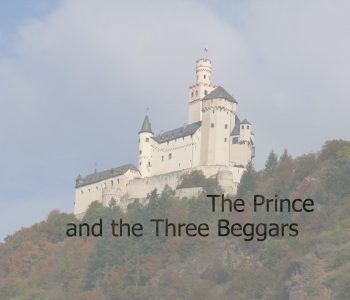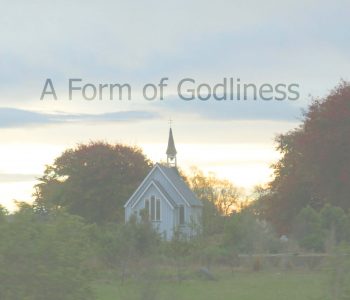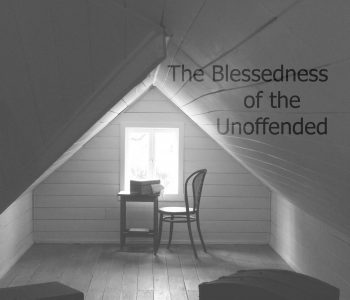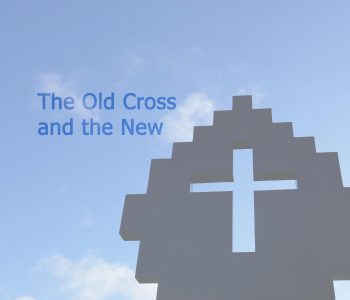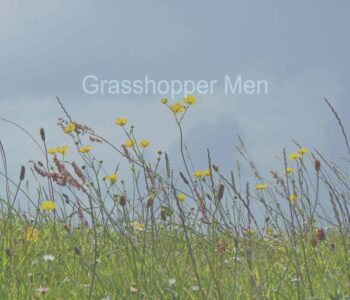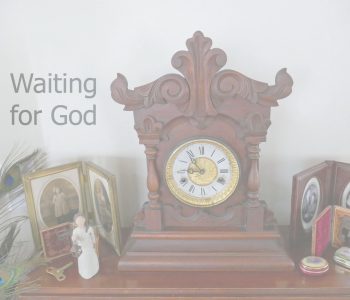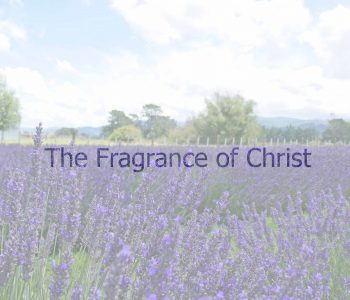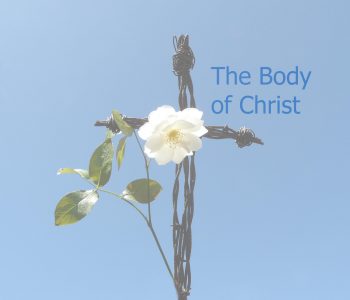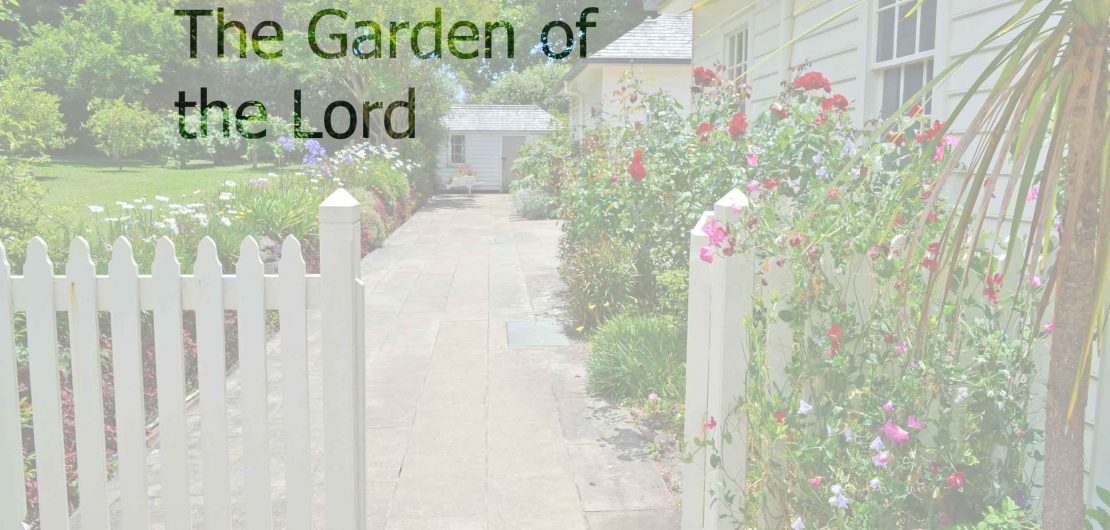 Other Authors
Other Authors
The Garden of the Lord
“I will make her desert like the garden of the Lord” (Isaiah 51:3)
“Ye are God’s garden” (1 Cor. 3:9)
“I have come into My garden… I have gathered My myrhh with My spice” (Song of Solomon 5:1)
In recent weeks my wife and I have had the pleasure of spending much time together in the garden of a Nursing Home where we are being cared for, and it has made us think again of what the Bible says about God’s church, which is frequently depicted as “the Garden of the Lord”. We have also thought about our individual hearts and lives which should be gardens for the Lord to enjoy.
There are a number of ways in which the Christian’s heart can be likened to a garden, and we would like to mention just some of them, meanwhile exposing ourselves to the challenges that will surely reach us as we do so.
The first thing that comes to mind is that a garden is…
A Separated Place
The kind of area that we have in mind is normally a fenced-off plot of land having its own clear boundaries, preferably a high wall if the garden is to be fully protected and to yield its best results.
Similarly, we can say that Christians are intended to be a separated people, separated from the world and separated unto God. This is a basic truth which the Bible reiterates again and again (e.g. Ex. 33:16b; Lev. 20:26; 1 Kings 8:53), and we must not miss its importance. Hence also, the call of Paul to the Corinthians, “Come out from among them, and be ye separate, saith the Lord, and touch not the unclean thing” (2 Cor. 6:17). This, of course, is to be done in a humble spirit, realising that we ourselves were very much a part of that powerful ‘world-system’, and it is only God’s grace and mercy that have liberated us (see 1 Cor. 6:11; Eph 2:104). While we cleave to all our fellow-men as individuals, and in the love of God, we are careful to stand clear of that enemy-held ‘system’ which controls society, and holds unregenerate men in its grip. We live, instead, under the gracious Lordship of Christ, seeking to have our whole lives controlled by Him. That, itself, will make us easily distinguishable. Our aims and objectives will be completely different, and likewise our appetites and occupations. In other words, our boundaries will be well in place, and people around us will easily know that we are citizens of another country (Phil 3:20 RV; Heb. 13:14), and speak another language.
It is instructive to notice that, at the time of Israel’s exodus from Egypt, Pharaoh tried to persuade the Israelites to perform their religious exercises within Egypt itself. Moses, however, insisted that they must leave Egypt’s borders behind them, pointing out that only in that way could they be secure (Ex. 8:25-27). The next plea of Pharaoh was that they go “not very far away” (verse 28), but Moses would not have that either. He knew that God’s people needed to be totally out of Egypt’s influences if their worship was to be acceptable. All this is full of significance for God’s people today, and we should pay earnest heed to it. Only well-separated people can serve God as they should, and worship Him as He deserves. That is the message. If we are to be God’s garden, we must see that our boundaries are in place and we are clearly separate. That was Paul’s position when he wrote the well-known words, “God forbid that I should glory, save in the Cross of our Lord Jesus Christ, by Whom the world is crucified unto me, and I unto the world” (Gal. 6:14). That life was a separated garden, indeed; Paul, “separated unto the gospel of God” (Rom. 1:1). And what fruits and also flowers! Hallelujah!
Our next thought about a garden is that it is…
A Dedicated Place
By this we simply mean that it is someone’s rightful property, and that it exists for the good will and pleasure of its owner. It is a place for him, and, while we may be pleased to share its delights and benefits with others, that again is because it is his wish so to do. The actual deeds of ownership are in his name. He owns it all. The flowers are his; the fruit trees are his; and the very soil itself belongs to him. He bought it; he owns it and he will use it for whatever purpose he desires.
This surely is the right view of the Christian life. We are a people belonging to the Lord; we are His property, and “for us to live is Christ” (Phil. 1:21). “If we live, we live unto the Lord; if we die, we die unto the Lord” (Rom. 14:8). Paul tells us that “Christ died that they which live should not henceforth live unto themselves, but unto Him Which died for them, and rose again” (2 Cor. 5:15).
In the Old Testament we read that God said to the nation of Israel, “thou art Mine” (Isa. 43:1), and, as the context shows, He based His claim on the fact of creation and the fact of redemption, and also on the fact that He had “called them by their name”. The Lord Jesus Christ can likewise say to every Christian believer, “thou art Mine”, and He can certainly base His claim on the same glorious truths. He is our Creator (John 1:3; Col. 1:16), and also our Redeemer (Eph. 1:7; Col. 3:13), and He has called us by our names (Isa. 43:1). We are, indeed, the “garden of the Lord”, something that He owns and something that He can enjoy. We read that, right now, our Lord is “purifying unto Himself ‘a people for His own possession,’ zealous of good works” (Tit. 2:14 RV). Christians are, indeed, a favoured garden belonging to a very worthy Owner, and everything in us is for Him.
Let us here give an example of this. Many of us have been richly blessed through the writings of Watchman Nee of China, and his rich Bible ministry. We would say that one great secret behind his ministry was a little sentence that became brother Nee’s life-motto: “I want nothing for myself; I want everything for Christ.” That is what we mean by ‘a dedicated garden’. That life belonged to Christ alone, and so did all that was produced by it.
It is again interesting to notice that, in the Song of Solomon, the bride (the church) first refers to her garden as her own (Song of Sol. 4:16a), but almost immediately corrects herself and says it is the bridegroom’s garden (verse 16b); “Let my Beloved come into His garden, and eat His pleasant fruits.” The Bridegroom immediately concurs with that, and says in the next verse, “I am come into My garden… I have gathered My myrrh; I have eaten My honeycomb with My honey…” (5:1) Yes, the garden is His, and all the fruits are likewise His, and it is for Him to enjoy them to the full. There, we believe, is the secret of a fully-satisfying Christian life. It is first a life that satisfies Him, and we may be sure that, whatever we may need, will be given to us. And best of all, however, we know our lives are at last back where they belong. We are, purely and simply, His garden.
We would like to close this section with two verses from the pen of His gifted servant, E. May Grimes:
“Like a watered garden,
Full of fragrance rare,
Lingering in Thy presence,
Let my life appear.”
All to Thee is yielded,
I am not my own;
Blissful, glad surrender;
I am Thine alone.”
Certainly we are not our own; our garden has been bought with a great price. (See 1 Cor. 6:19,20). Let Him have us for whatever He wills.
The best-known fact about a garden, of course, is that it is…
A Beautiful Place
Very much has been written about this, and we certainly have no intention of trying to add more. Our simple thought, just here, is that Christians, being gardens of the Lord, should be beautiful people: beautiful in their characters, and beautiful for all to see, and beautiful in the eyes of their Lord.
It is a great cause for praise whenever and wherever we can see this plan and purpose of God being realised. Sometimes, when we have been among believers, we have heard the remark concerning someone: “What a lovely brother!”, or “What a lovely sister”, and we have wished that it might have been able to be said of ourselves. Thank God, we need not despair, for our Bibles tell us that God has made ample provision for this in His dear Son. Paul writes of God being “able to make all grace abound toward us; that we, having all sufficiency in all things, may abound to every good work” (2 Cor. 9:8). And Peter adds, “God has given us all things that pertain unto life and godliness, through the knowledge of Him” (2 Pet. 1:3). We could equally render it, “God has given us all things that pertain unto life and loveliness”, and all through the knowledge of our Lord. Yes, it is through Him, and Him alone, that people like us can become beautiful Christians!
No one can question that our Lord Jesus was Himself the loveliest ‘garden’ this world has ever seen. In Him, every flower of beauty was found, and all true fragrances were combined. Moreover, we soon discover that all really beautiful Christians insist that any traces of beauty that may be found in them are simply derived from Christ. Our Saviour is Himself the great “plant of renown” (Ezek. 34:29), and the true original of all beautiful plants and flowers. Indeed, He is the seed-plot of all desirable and delectable things.
It is important to notice that, in Psalm 90:18, Moses the man of God, did not even think of any beauty of his own, but simply prayed, “Let the beauty of the Lord our God be upon us.” We might well make that prayer ours also, for that alone is the secret; being clothed upon by a beauty which is in our Lord alone.
Surely, we all long to be like beautiful gardens for our Lord to enjoy. And, thank God that, whenever we pray for this, we have countless promises that we can claim. Among them, is that precious passage in Hosea, where God says: “I will be as the dew unto Israel: he shall grow as the lily, and cast forth his roots as Lebanon… his beauty shall be as the olive tree, and his fragrance as Lebanon” (Hosea 14:5,6)
How much we need that gentle and refreshing “dew” if ever we are to be the kind of garden the Lord is looking for!
A particular point for us to remember is that the beauty of a garden lies largely in the fascinating variety of shape and colour that is normally to be seen there. That, most certainly, is true of Christ. In that “altogether lovely” garden, we find the white lily of His unsullied purity, the crimson rose of His Calvary redemption, the green foliage of His triumphant resurrection, and the golden sunflower of His present ascended glory. And, high above all, we may perceive the overspanning sky of His timeless origins and destiny. O, what a garden He is! And now that whole incomparable ‘blend’ is available to us as we learn to live by His Life only!
In contrast with all that, of course, are those awful incongruities which are in us, and which so often mar our own testimony. While some of us may be exemplary in zeal, for instance, that is so often spoiled by an obvious shortfall when it comes to tolerance and grace. Or it could be that, while good Bible knowledge is flourishing, there could be little or no evidence of humility; perhaps the exact opposite. Perhaps our first need is to see that beautiful blend and balance that is most surely in Christ, and then, by simple faith, to appropriate Him as God’s gracious provision for our need. In that way, the whole garden of our lives may, in time, become an unspoiled panorama of His perfections.
May God work on in all our hearts, gradually conforming us to the image of His Son (Rom. 8:29). Then He will be able to open the gates of His garden and say to all, “Come and see My glory” (Isa. 66:28).
Closely related to what we have just been saying is the fact that a garden is…
A Fragrant Place
It is evident that God delights to please that whole range of senses which He has given to His human creatures. Even within a simple garden, for instance, what sight for the eye, what sounds for the ear, and also, what a variety of fragrances there are for us to delight in. The rose, the violet, the hyacinth, the lavender and countless others send forth their own peculiar perfumes, and all are a joy to us. Even the fruit trees and their fruits have their own “sweet smell” (eg Song of Sol 2:13; 7:8), and even if we could not actually taste the fruits, they would still minister something to us. Some of us know, for instance, how positively alluring the scent of some mango can be, so that wherever we are, we can never forget it.
O how gracious and how kind the good Lord is, ministering to us in so many ways, and bringing indescribable delights to all our inborn senses. I have been told that there is a large garden near Athens which is wholly given over to the cultivation of the most sweet-smelling roses, and that people who walk there early in the morning will carry in their clothing through the day the beautiful fragrance of those roses.
Our point in staying all this is that God’s redeemed people are to be like fragrant gardens. Paul tells us that “we are unto God a sweet savour of Christ” (2 Cor. 2:15). What a heartening statement that is! To be fragrant at all would be wonderful, but, to be a fragrance of Christ, and that “to God”, is something beyond all comprehension. It is as though God, when He looks down from heaven upon His redeemed people, is able to discern in them, the sweet scent of Christ, and He is able to say again, “This is My beloved Son in Whom I am well pleased” (Matt. 3:17; 17:5). That must be the true ultimate of Christian living; God discerning in us the fragrance of His Son!
The Bible likewise speaks of the resultant outflow of that fragrance to all around (Song of Sol. 4:16). But there is the suggestion, there, that all kinds of winds must blow upon that garden if the outflow is to be at all considerable. The “north wind” must blow, and also the “south wind”, if there is to be that outflow. The wind, of course, reminds us of the Holy Spirit (John 3:8; Acts 2:2), and the north wind would suggest those more incisive and penetrating activities of His which are so often necessary. The south wind would then bring to mind those more gentle and comforting movings of the same Spirit which we may experience and know when we have finally settled any lingering conflicts and controversies in Christ’s favour. But we may be assured that whatever ministry of the Spirit our gardens may need, it is always with the positive objective of spreading abroad the sweet fragrance of Christ. God is ever set on an outgoing ministry to need, and the varied influences and workings of the Spirit are His way to that end.
Yes, gardens are fragrant places, and we need to ask God to make our lives far more fragrant towards Himself, and then towards our fellow-men. In Christ, of course, all sweet fragrances combine, and we need to be filled with Him every single day.
We may next observe that a garden is…
A Place of Growth
All will agree that, in a normal garden, nothing is static. Small seedlings become big plants, and even small seeds sometimes become big trees. The Lord Jesus remarked on this in His well-known parable of the mustard seed, which He said was “the least of all seeds, but when it is grown… becometh a tree, so that the birds of the air come and lodge in the branches thereof” (Matt. 13:31,32). Our Lord also spoke of the mystery element in all this, and told of a man casting seed into the ground, and then of the seed springing and growing up, “he knoweth not how” (Mark 4:26-28). Indeed, it is a mystery, but in a garden, the fact of growth is everywhere.
Most of us, at some time, have been fascinated by the way in which, with the aid of modern photography, this miracle-growth of plants and flowers can be vividly portrayed before our eyes. Just a small adjustment to the timing of the camera and, right there in front of us, we can see seeds vigorously working their way up through the dark soil, then stems and buds quickly forming, and at last, the full blooming of a glorious flower; and all in a few seconds of time! Could we but see it, that marvel or miracle-growth is going on everywhere all the time, and yet all in a hushed silence! It is clearly a law of God that where there is life there will be growth also. The two must go together.
Christians, most certainly, should be like gardens in this respect, they should be growing all the time. The very last word we have from the pen of Peter is a plea for us to “grow in grace, and in the knowledge of our Lord and Saviour Jesus Christ” (2 Pet. 3:18). In his earlier epistle, the same Peter urges his suffering brethren to “desire (long for, RV) the sincere milk of the Word” that they might grow thereby (1 Pet. 2:2). He actually compares that ‘desiring of the Lord’ to the insistent outcry of a newborn babe for its milk. It should be mentioned here that the Christians whom Peter was addressing here were by no means ‘babes’ in spiritual things! They were, in fact, Christians who had been considerably matured through sufferings. (See 1 Pet. 1:6-9). Peter’s message was simply that, whatever stage any of us might have reached, our longing for the Word of God should still be like that of a newborn babe crying out for its milk. Surely all of us should ask God to give us that kind of craving for His Word. It is a basic secret of spiritual growth.
As we remarked earlier, the growth that goes on in a garden is strangely quiet; it is something that takes place in complete silence. There are no audible cracklings and grumblings; the development just goes on quietly day by day. This, too, has its particular message for us. In spiritual things, we grow quietly. It is largely a matter of being occupied with the Lord Himself, just “beholding the glory of the Lord” and being thereby “changed into His image, from one degree of glory to another” (2 Pet. 3:18 RSV). In our day, it is just as imperative as ever to heed the word of the Psalmist, “Be still and know that I am God” (Psa. 46:10). We know full well how difficult that is in our day with such a mad rushing world around us, but it is still God’s way, and those who will pay the price will enjoy the incomparable reward of spiritual growth. Others around will quickly see it.
Perhaps some of us might be well-advised to undertake a little ‘monitoring’ in this area. We know the dangers of over-much introspection, but, within reason, we could sometimes ask ourselves such questions as:
“Do I really know Christ better now?” (Could I mention some specifics?)
“Do I show Christ better now? (What have other people seen?)
Perhaps, however, it is better for other people to do the monitoring, and at the same time to show grace and patience towards us. But grow we must, for there is much of Christ yet to be discovered by us.
Perhaps we could conclude this section with a specially heartening promise from the Psalms: “The righteous shall flourish like the palm tree: he shall grow like a cedar in Lebanon. Those that be planted in the House of the Lord shall flourish in the courts of our God” (Psa. 92:12,13)
O that all of us might “grow up in all things into Christ” (Eph. 4:15 RV).
We would like to say something now about a garden being…
A Place of Rest
We have already mentioned the restfulness and quiet of the garden itself, and the silence with which the plants and the flowers develop. But now we desire to stress the rest and peace which the garden is designed to bring to others, particularly, we may say, to the Owner himself. Once more we are bearing in mind the fact that God’s people are likened to God’s garden (Isa. 51:3; Song of Sol. 5:1), and therefore have the amazing privilege of bringing rest to the heart of God. The Bible tells us this is so (eg Zeph. 3:17), and it is something for which we should all be eternally grateful.
Probably all of us, at some time, have experienced the special kind of rest which a garden can afford. When our minds are tired, and our bodies are weary, the place to which we naturally gravitate is the garden. Here we can sit in quietness, and the sense of calm that is all around seems to get into us, and we find ourselves at peace. The tensions somehow dissolve, and the disquiet slowly disappears, and a sense of calm returns to us. We begin to be at rest.
Is it not wonderful that, as God’s people, you and I may fulfil a ministry like that to our oft-weary God? We can be resting-places, His gardens. O may the Lord enable us to rise to this amazing aspect of our calling.
In the book of Isaiah we find God Himself asking the question: “Where is the place of My rest?” Although heaven is His throne, and earth His footstool, He still reaches out for some special place where His whole being can be fully rested and satisfied. (See Isa. 66:1). Immediately, in the same passage, the Lord goes on to speak of ‘man’; ‘man’ of a certain kind, who would meet that need, and supply Him with that particular kind of rest that He is longing for. We now know that “the man Christ Jesus” is the One who meets that need, and how God was glad to say of Him, “This is my Beloved Son in whom I am well pleased” (Matt. 3:1; 17:5). The great wonder, now, is that, through redemption, that New Man becomes the very life of the Christian (Col.3:4), imparting His own divine nature to us (1 Pet. 1:4), so that we too, in union with our Lord, become God’s completed rest!
The whole Bible, we could say, is occupied with that same glorious theme: God’s resting-place. Right at the beginning, we have the picture of God walking with His creatures, Adam and Eve, in the garden of Eden, in the cool of the day (Gen 3:8). That was unfallen Adam and Eve, and the scene was one of complete harmony and tranquility. Then, of course, came the fall, and the whole picture is changed, and Adam and his wife are expelled from the garden. From that point onwards the Bible is occupied with redemption, and we have the coming of Christ, and the formation of His church. Finally, our Bibles close with these wonderful words, “Behold, the tabernacle of God is with men, and He will dwell with them and God shall wipe away all tears from their eyes” (Rev. 21:3,4). Thus it is that God secures His rest, and the grandest story in history comes to its glorious conclusion.
This awesome revelation of Scripture should be an unspeakable comfort and relief to all of us. As the fallen offspring of Adam we had brought so much pain and grief to our Maker, but now, with Christ as our new life-source, we are in a position to bring joy and rest to His own great heart. We are again His garden, and we may well re-echo the well-known prayer of Solomon at the dedication of the temple: “Now therefore arise, O Lord God, into thy resting place, Thou and the ark of thy strength” (2 Chron. 6:41).
How wonderful it is when God Himself is at rest among His people!
We cannot conclude this series without mentioning what must be the most important truth about a garden; it is…
A Place of Resurrection
It is just a simple fact that everything we see in a garden is result of this principle. Somewhere, and at some time, there has been the dying of a seed, and then a rising again. All the beauties we behold; all the fragrances that reach us; and all the fruits we enjoy – all are the results of resurrection. And for that reason also, every garden on earth can be called “the garden of the Lord”, for only He can raise the dead. Men may sow, and men may water, but only He can “give the increase” (1 Cor. 3:6,7). “It is God which raiseth the dead” (2 Cor. 1:9).
It is hard to know why men cannot, or will not, believe in the resurrection. It has been said that every blade of grass is a preacher of resurrection. We could also say that every plant that grows, and every flower that blooms are all telling out the same glorious message: “death is swallowed up in victory” (Isa. 25:8). In a garden, most certainly, resurrection is everywhere.
That, certainly, is very true of God’s redeemed people. They are God’s garden, and, indeed, they are resurrection people!
Paul reminded the Ephesians of this when he wrote, “And you hath He quickened, (made alive, RV) who were dead in trespasses and sins. But God who is rich in mercy… even when we were dead in sins, hath quickened us together with Christ” (Eph. 2:1-5). Isaiah spoke of our ‘dead condition’ when he said, “Your iniquities have separated between you and your God, and your sins have hid His face from you” (Isa. 59:2). That separation was death indeed, and, with us, it was evidenced by no life of prayer or praise, no inclination to worship and no real enjoyment of the living God at all. Spiritually we were quite dead, even when we thought we lived (1 Tim. 5:6).
How good it is, then, when God can say to us what the prodigal’s father said to his wayward son, “This my son was dead and is alive again” (Luke 15:24).
After we are born again, of course, this principle of resurrection has an ever-deepening meaning for us. We learn to rejoice that God sees us as having been crucified with Christ, and that, by faith, we can reckon as God reckons, and be delivered from the bondage of our old Adamic life, and take all we need from our risen Saviour. In that way, we not only taste newness of life but “walk in newness of life” (Rom. 6:4).
We see that the ‘Garden of the Lord’ begins to flourish more and more, and the mark of resurrection is consistently upon us. Daily we carry the testimony that Jesus lives!
May God help us to search out all these Scriptures for ourselves and to exercise the faith that will surely come to us (Rom. 10:17). Then, as we earlier said, God will be able to open the gates of His garden to all, and say, “come and see My glory” (Isa. 66:18).
Oh that He may enjoy His garden to the full!
